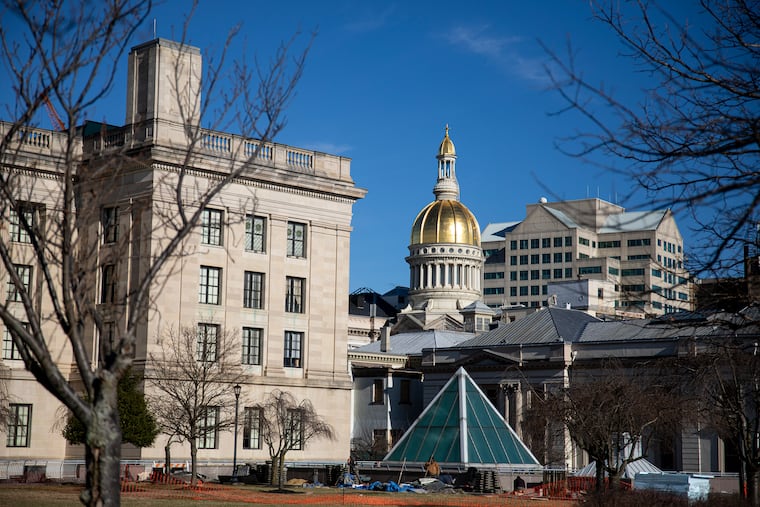As a New Jersey commission investigates addiction-treatment abuse, a Mullica Hill rehab owner denies wrongdoing
A state commission expects to release a report on abuse in the addiction treatment industry within the next several months.

A New Jersey addiction rehab owner rejected allegations by state investigators that he overbilled to pay for luxury cars and personal credit card charges and to expand his business of sober homes.
Nicholas DeSimone, the owner of Kingsway Recovery in Mullica Hill, said at a hearing Wednesday that he was not intimately involved in the day-to-day running of his business and that his company has operated aboveboard. He said that he had not overbilled insurance companies and that investigators had misinterpreted what he described as complex, but legitimate, billing practices.
DeSimone was subpoenaed to appear before the New Jersey State Commission of Investigation at a wide-ranging hearing in October but instead filed a motion to quash the subpoena and did not attend. The commission then filed a contempt motion in court, and he testified under oath Wednesday.
The commission expects to release a report on abuse in the addiction-treatment industry within the next several months.
» READ MORE: In New Jersey, investigators say they are uncovering abuse in the state’s booming rehab industry
Allegations of profiteering
In October, state investigators said DeSimone and his wife, Michelle, had funneled extra cash from Kingsway into a sober home operation called Graceway, owned by Michelle.
Sober homes, where people undergoing addiction treatment often stay, cannot bill insurance companies. So, investigators said, the DeSimones funded their own sober homes in order to persuade residents there to choose Kingsway for treatment.
On Wednesday, DeSimone said that Kingsway and Graceway operated as separate companies and that he had no involvement in his wife’s business. He said that staff at Kingsway also referred clients to other sober homes, although investigators have said that nearly all of its clients lived at Graceway.
The DeSimones allegedly spent money they’d garnered from overbilling to fund a lavish lifestyle and more sober homes, investigators said — more than they would have been able to afford otherwise. DeSimone said he had only ever used money from a Kingsway bank account to purchase a watch.
Investigators had also flagged a number of transactions he made to personal accounts, each totaling exactly $9,000. That sum is just under federal bank transaction reporting requirements, and investigators called it a potential sign of money laundering or tax evasion.
But DeSimone said he simply wanted to “keep [his deposits] uniform.”
» READ MORE: Camden addiction clinic to pay millions in settlement over alleged kickback scheme
As for overbilling, he said, a third-party company was used to handle billing, and it appeared to charge twice for the same services on the insurance bills that investigators deemed suspicious.
Attorney Gilbert Brooks, who is representing DeSimone, said investigators misinterpreted which services different medical billing codes were covering. DeSimone said that he doesn’t review Kingsway’s individual billing statements, and never has.
A former Kingsway employee also told investigators earlier this year that higher-ups at the treatment center were encouraging staffers to falsify positive drug tests for clients in order to keep their insurance companies paying for treatment.
DeSimone told the committee, however, that he contracted with a lab company to collect urinalysis samples from his clients, and that there was “no way” a test could have been falsified.
» READ MORE: As meth overdoses spike in N.J. and Pa., advocates call for better treatment for people who use stimulants
DeSimone repeatedly said during the hearing that day-to-day operations at Kingsway, which treats about 30 to 40 patients at a time, are largely handled by his director of operations. While they speak several times a day, DeSimone said, he does not often visit the facility itself.
He told the commission that he considers addiction treatment a calling and is himself in recovery from an addiction to alcohol.
“That is why we take allegations of misconduct so seriously,” he said, and added that he welcomes oversight and regulatory changes that help patients.
Commission Chair Tiffany Williams-Brewer said she was glad to hear DeSimone’s testimony. “It’s helping to further our investigation, which will continue,” she said.